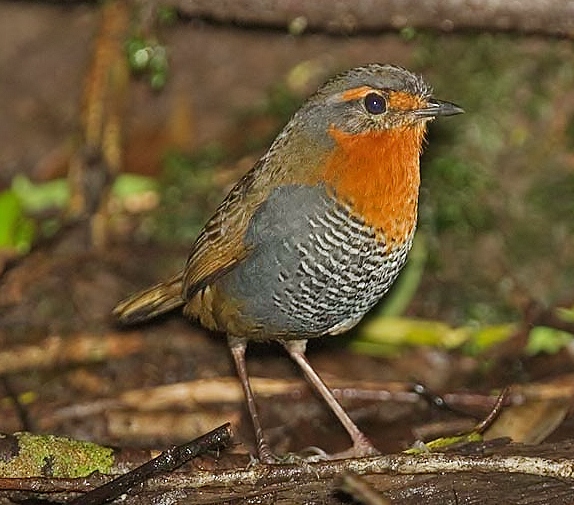 |
| Photo by Arthur Grosset (Arthur Grosset’s Birds) |
Common name:
chucao tapaculo (en); tapaculo-de-peito-ruivo (pt); tourco rougegorge (fr); chucao (es); rotkehltapaculo (de)
Taxonomy:
Order Passeriformes
Family Rhinocryptidae
Range:
This South American species is found in central and southern Chile and across the border into neighbouring regions of Argentina.
Size:
These birds are 16-18 cm long and weigh 35-43 g.
Habitat:
The chucao tapaculo is found in temperate forests from sea level up to an altitude f 1.500 m.
Diet:
They are omnivorous, eating invertebrates, fruits and seeds. They are known to eat various insects, including Coleoptera, Hymenoptera, Diptera, Lepidoptera, Hemiptera, Orthoptera, Dermaptera, Psocoptera and Anoplura, spiders, mites, and occasionally also snails, isopods and chilopods, as well as the fruits and seeds of various herbs and grasses.
Breeding:
Chucao tapaculos breed in September-February. The nest is placed in a cavity in a live tree or stump, or within the leaves of epiphytes, up to 2 m above the ground. There the female lays 1-3 white eggs which are incubated for 23 days. The chicks fledge 21 days after hatching.
Conservation:
IUCN status – LC (Least Concern)
This species has a relatively large breeding range and is described as fairly common. The population trend for this species cannot be determined based on the available information, but the chucao tapaculo is not considered threatened at present.







